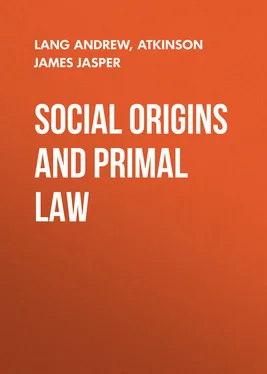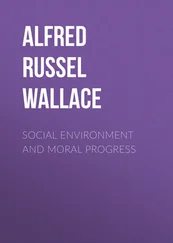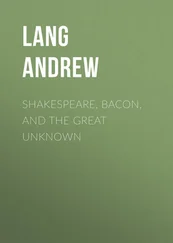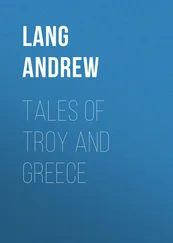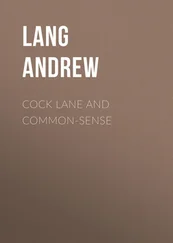Andrew Lang - Social Origins and Primal Law
Здесь есть возможность читать онлайн «Andrew Lang - Social Origins and Primal Law» — ознакомительный отрывок электронной книги совершенно бесплатно, а после прочтения отрывка купить полную версию. В некоторых случаях можно слушать аудио, скачать через торрент в формате fb2 и присутствует краткое содержание. Жанр: foreign_antique, foreign_prose, на английском языке. Описание произведения, (предисловие) а так же отзывы посетителей доступны на портале библиотеки ЛибКат.
- Название:Social Origins and Primal Law
- Автор:
- Жанр:
- Год:неизвестен
- ISBN:нет данных
- Рейтинг книги:3 / 5. Голосов: 1
-
Избранное:Добавить в избранное
- Отзывы:
-
Ваша оценка:
- 60
- 1
- 2
- 3
- 4
- 5
Social Origins and Primal Law: краткое содержание, описание и аннотация
Предлагаем к чтению аннотацию, описание, краткое содержание или предисловие (зависит от того, что написал сам автор книги «Social Origins and Primal Law»). Если вы не нашли необходимую информацию о книге — напишите в комментариях, мы постараемся отыскать её.
Social Origins and Primal Law — читать онлайн ознакомительный отрывок
Ниже представлен текст книги, разбитый по страницам. Система сохранения места последней прочитанной страницы, позволяет с удобством читать онлайн бесплатно книгу «Social Origins and Primal Law», без необходимости каждый раз заново искать на чём Вы остановились. Поставьте закладку, и сможете в любой момент перейти на страницу, на которой закончили чтение.
Интервал:
Закладка:
Roughly speaking, the groups of real or fancied kindred among various low races exhibit the peculiarity that the kin-name is often inherited from the mother, not from the father; that the maternal blood is stronger in determining such cases of inheritance as arise; and that marriage is forbidden within the recognised limits of the maternal kinship. It was natural for inquirers to derive this condition of affairs, this reckoning in the female line, from a state of society in which fatherhood (owing to promiscuity, or to polyandry – several husbands to one wife) was notably uncertain. Bachofen, who first examined the problem, attributed the system to a supposed period of the Supremacy of Women: McLennan to dubious fatherhood, and possible early promiscuity. The recovery of supremacy by men, or the gradual advance in civilisation, especially in accumulation of property, would finally cause descent to be reckoned through the male line, as among ourselves.
As to the question of early promiscuity – sexual relations absolutely unregulated – Dr. Westermarck, Mr. Crawley, and others have argued, and Mr. Atkinson argues, that it never existed, at least to any wide extent, and with any potent influence. We hear rumours of savages utterly promiscuous, say the Mincopies of the Andaman Islands, just as we hear of savages utterly without religion. But later and better evidence proves that the Andamanese have both wives and a God. 20 20 Westermarck, History of Human Marriage , pp. 53-57.
Again, the lowest savages known are so far not 'promiscuous,' that they recognise certain sets of women as persons with whom (as a general rule, subject to occasional exceptions) certain sets of men must have no marital relations. It was the opinion of Mr. Darwin, as of Mr. Atkinson, that sexual jealousy, from the first, must probably have been a bar to absolute promiscuity, even among the hypothetical anthropoid ancestors of human race. To tell the truth, our evidence on these points, as to existing savages, is, as usual, contradictory. 21 21 Mr. John Mathew declares that 'jealousy is a powerful passion with most aboriginal husbands' in Australia. Messrs. Spencer and Gillen, on the other hand, represent the aboriginal husband as one of the most complacent of his species, jealousy being regarded as 'churlish.' Messrs. Spencer and Gillen are decidedly the better authorities. Mathew, Jour. Roy. Soc. N.S.W. , xxiii. 404. Westermarck, p. 57. Native Tribes of Central Australia , p. 99.
WHAT IS EXOGAMY? DIFFICULTIES OF TERMINOLOGY
In these inquiries a great source of confusion arises (as all students must be aware) from the absence of exact terminology, of technical terms with a definite and recognised meaning. Thus when my friend, the late Mr. John Fergus McLennan, introduced the word 'Exogamy,' in 'Primitive Marriage' (1865), he probably knew perfectly well what he meant. But he did not then, from lack of practice in an inquiry practically novel, and originated by himself, express his meaning with exactness. He at first spoke of exogamy as the rule 'which prohibited marriage within the tribe.' 22 22 Studies in Ancient History , 1876, p. 41.
But the word 'tribe' was later taken by Mr. McLennan to mean, and is now used as meaning, what cannot be a primitive community, a local aggregate of groups amicably occupying a considerable area of country; say the Urabunna tribe of Central Australia. Mr. McLennan did not wish to say that exogamy forbids an Urabunna tribesman to marry an Urabunna tribeswoman; he meant that exogamy prohibited marriage within the recognised kindred – that is, in this case, between members of totem kindreds of the same name, say Emu or Kangaroo. This fact he later made perfectly clear. But meanwhile such terms as 'horde,' 'tribe,' 'sub-tribe,' 'family,' 'gens,' 'section,' 'phratria,' 'clan,' many of them derived from civilised classical or Celtic usage, have been tossed up and down, in company with 'class,' 'division,' 'section,' and so on, in a way most confusing. 23 23 The late Major Powell, of the American Bureau of Ethnology, used gens of a totem kin with descent in the male line, clan of such a kin with descent in the female line, and his school follows him. Mr. Howitt, on the other hand, uses 'horde' for a local community with female, 'clan' for a local community with male descent.
Odd new terms come from America, such as 'socialry,' 'tutelaries,' 'ocular consanguinity,' 'ethnogamy,' 'conjugal conation,' and so forth. 24 24 'The Seri Indians,' by W. J. McGee. Report of Bureau of American Ethnology , Washington, 1898.
Most perplexing it is to find words like clan, family, tribe, gens , phratry, words peculiar to civilised peoples, Greek, Roman, or Celtic, applied to the society of savages. 'The term "clan" implies descent in the female line,' says the late Mr. Dorsey, following Major Powell; but why take the Celtic term 'clan,' which has no such signification, and confer it on what is really a totem kindred with descent in the female line? 25 25 'Siouan Sociology,' Report of American Ethnological Bureau , 1897, p. 213.
Next, 'several of the Siouan tribes are divided into two, and one into three sub-tribes. Other tribes are composed of phratries, and each sub-tribe or, phratry comprises a number of gentes .' Is there a distinction between the 'sub-tribes' of some tribes, and the 'phratries' of others, or not? Apparently there is not, but the method of nomenclature is most confusing.
I shall understand the terms which I employ, as follows:
The tribe, speaking of the Australians, for instance, is a large aggregate of friendly or not hostile human groups, occupying a territory of perhaps a hundred square miles, and holding councils and meetings for social and religious purposes. It is so far 'endogamous' that its members may marry within it – that is to say, it is no more endogamous than the parish of Marylebone. An Urabunna man, a man of the Urabunna tribe, may marry an Urabunna woman – if no special native law interferes. He may also at pleasure marry, out of his tribe, say a woman of the neighbouring Arunta tribe, again, if no special law bars the arrangement. So far the tribe, the large local aggregate of groups, stands indifferent. But, within the tribe, there are laws barring marital intercourse. First, each tribe is usually composed of two 'primary exogamous divisions,' or 'phratries,' so called; in the case of some tribes the phratries are named; for example, Matthurie and Kirarawa . Every man and woman, in such tribes, is either a Matthurie or a Kirarawa, and can only marry into the opposite division, and the children follow the name of the mother. These two divisions are called 'primary classes' by some students; 'phratrias' (from the Greek: Φρατρία) by others; 'sub-tribes' by others; or, again, 'moieties,' or 'groups.' I shall, in each instance, use the term ('class,' 'phratria,' 'moiety,' 'primary exogamous division,' 'group,' and the like) employed by the author whose opinion I am discussing, though I prefer 'phratry,' as 'class' has another significance; so has 'group,' &c.
Again, the tribe contains a number of totem kindreds (often called 'clans' or gentes , rather at random), that is, of sets of kin deriving their names from totems , plants, animals, or other objects in nature. To the possible origin of Totemism we return in a separate section. No Urabunna man may marry a woman of his own 'phratry,' nor of his own totem , and the children inherit the phratry and totem names from the mother. Finally, there are sets of relationships, roughly indicating, it would seem, seniority by generations, and degrees of actual or supposed kindred. Within many of these, which I shall style 'classes' (they have other terms applied to them), marriage is forbidden. Thus there are bars of three several sorts on the intermarrying of an Urabunna man with an Urabunna woman. In a way, there are three grades of exogamous prohibitions.
Читать дальшеИнтервал:
Закладка:
Похожие книги на «Social Origins and Primal Law»
Представляем Вашему вниманию похожие книги на «Social Origins and Primal Law» списком для выбора. Мы отобрали схожую по названию и смыслу литературу в надежде предоставить читателям больше вариантов отыскать новые, интересные, ещё непрочитанные произведения.
Обсуждение, отзывы о книге «Social Origins and Primal Law» и просто собственные мнения читателей. Оставьте ваши комментарии, напишите, что Вы думаете о произведении, его смысле или главных героях. Укажите что конкретно понравилось, а что нет, и почему Вы так считаете.
